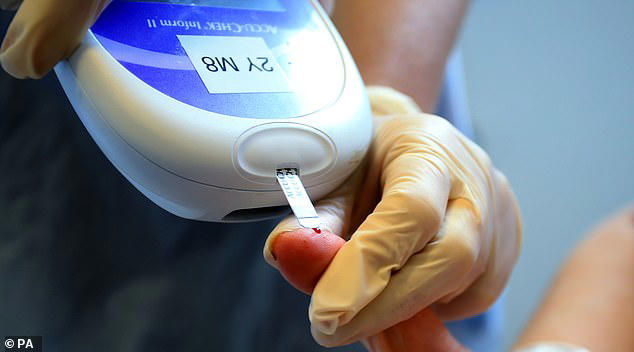Sleep and Type 2 Diabetes Risk: Explore how inadequate sleep affects your risk of developing type 2 diabetes. Learn the importance of healthy sleep habits and its impact on overall health.

Sleep and Type 2 Diabetes Risk
Have you ever considered the connection between your sleep habits and your risk of developing type 2 diabetes? Recent research sheds light on how inadequate sleep can increase your chances of developing this chronic condition. In this article, we’ll delve into the findings and explore why prioritizing healthy sleep habits is crucial for your overall well-being.
Understanding the Research
Recent studies have revealed a concerning link between insufficient sleep and an increased risk of type 2 diabetes. Even if you maintain a healthy diet, sleeping less than six hours a night may raise your risk by up to 16%. Shockingly, those who sleep only three to four hours per night face a staggering 41% higher risk compared to those who get more than seven hours of sleep.
The Importance of Sleep for Health
Sleep is not merely a time for rest; it is a vital component of maintaining optimal health. While the recommended amount of sleep varies from person to person, consistently getting enough quality sleep is essential for overall well-being. Beyond feeling refreshed and alert, adequate sleep plays a crucial role in regulating various bodily functions, including metabolism and hormone levels.
Healthy Habits vs. Sleep
While adopting healthy eating habits is crucial for preventing type 2 diabetes, research suggests that it may not be enough to counteract the effects of chronic sleep deprivation. Even individuals with the healthiest diets are still at an increased risk of developing type 2 diabetes if they do not prioritize sufficient sleep. This underscores the importance of addressing both dietary choices and sleep patterns for optimal health outcomes.
Insights from the Study
The research, conducted with data from nearly 250,000 UK adults over 12 years, offers valuable insights into the relationship between sleep duration, dietary habits, and type 2 diabetes risk. By adjusting for various factors such as demographics, lifestyle habits, and health status, the study highlights the independent impact of sleep on metabolic health.
Addressing Public Health Concerns
With millions of people worldwide living with type 2 diabetes and millions more at risk, understanding the multifaceted factors contributing to the condition is crucial for public health initiatives. By raising awareness about the importance of healthy sleep habits alongside nutrition and physical activity, we can empower individuals to take proactive steps towards reducing their risk of type 2 diabetes.
Mechanisms at Play
Several mechanisms may contribute to the increased risk of type 2 diabetes among individuals with inadequate sleep patterns. Sedentary lifestyle behaviors, impaired blood sugar regulation, and alterations in gut microbiota are among the factors that researchers are exploring. Further studies are needed to fully elucidate these mechanisms and inform targeted interventions.
The Holistic Approach to Health
The findings underscore the importance of adopting a holistic approach to health that encompasses nutrition, physical activity, and sleep. By recognizing the interconnectedness of these factors, individuals can make informed choices that support their overall well-being. Prioritizing sufficient sleep, along with maintaining a balanced diet and engaging in regular exercise, is key to reducing the risk of type 2 diabetes and promoting long-term health.
Conclusion
In conclusion, the link between inadequate sleep and an increased risk of type 2 diabetes highlights the significance of healthy sleep habits for overall health. While healthy eating is important, it may not fully compensate for the adverse effects of chronic sleep deprivation. By prioritizing sufficient sleep and adopting a holistic approach to health, individuals can mitigate their risk of developing type 2 diabetes and lead healthier, more fulfilling lives.
